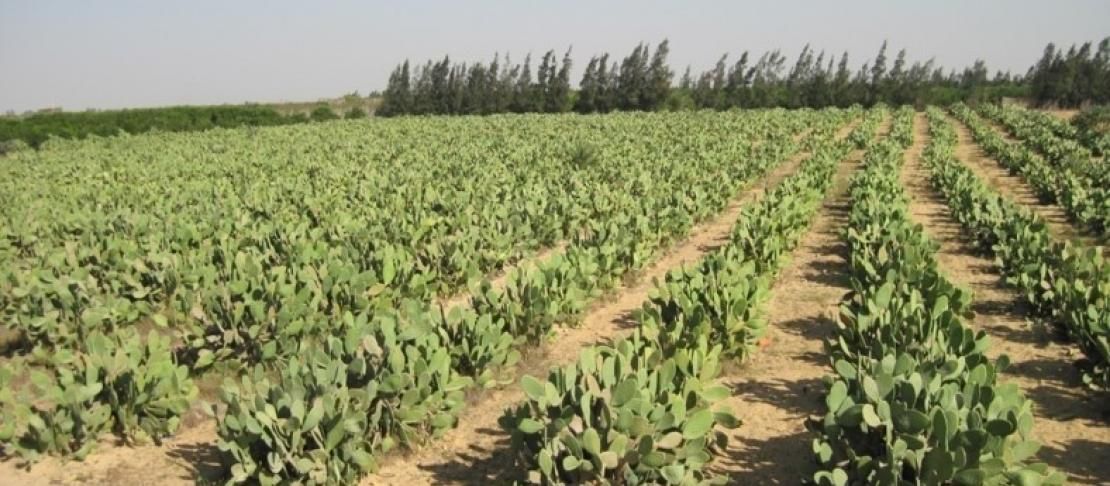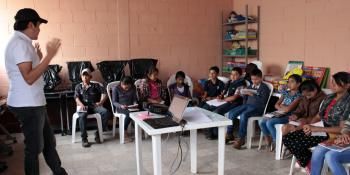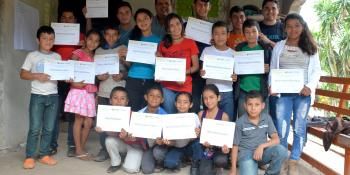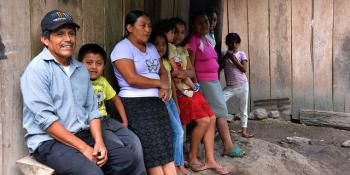Cactus cultivation as adaptation method for women in Egypt

Women in Egypt are rising to the challenge of climate change adaption with innovative and ecologically friendly water saving strategies, despite gender inequality.
If you want to know more about research on closing the gender gap in farming under climate change:
- read our special blog series on Closing the gender gap
- watch the presentations and the panel discussion from the Closing the gender gap event
- follow the #AgGenderGap event hashtag on twitter
Egypt is suffering from water resource struggles, rising sea levels, overexploited aquafers and unsafe salinity levels in the soil. These impacts of climate change affect men and women differently, especially when looking at one of the most gender unequal areas on the planet.
A new study conducted in the framework of the CGIAR Research Program on Dryland Systems by Dr. Dina Najjar, Associate Social and Gender Scientist at the International Center for Agricultural Research in the Dry Areas (ICARDA) examines the unique adaption strategies used by Egyptian women in the face of gender inequality and the increasing dangers of climate change. She looked at resettled villages, where communities were encouraged to leave the Nile River Delta and begin production in the desert through a multi-year process termed ‘land reclamation’.
Within the study, Dr. Najjar focused on two types of land owner women: heads of the households and graduates (from high school, technical school, or university). Interestingly, one of the villages was composed entirely of women as result of a government mandate hopping to improve women-exclusive services to the ‘widows’.
Dr. Najjar found 3 important strategies that female landowners use to combat climate change impacts. The first is the cultivation of the prickly pear cactus by the graduate women landholders. It requires minimal labor, which is important as many of these women are raising children who require schooling which was lacking during the early stages of the settlement. Additionally, it requires only small amounts of fertilizer and water, which cuts the cost of cultivation, and it can also be grown in poor soil. The fruit from the prickly pear is very popular amongst tourist, making this a desert and female friendly cash generating crop.
Despite the success females have had with the prickly pear, government policy does not support its cultivation. The government claims that this is because the cactus is not a strategic crop. The lack of focus on cactus in extension services contributed to misconceptions about the crop. Most locals believe that intercropping food crops with cactus results in bitter harvest despite the fact that research has never before been conducted on cactus cultivation.
Female friendly irrigation techniques are also being utilized. Drip and sprinkler irrigation systems used in conjunction with electric pumps are operated with an on/off switch and don’t require contact with the body which makes it possible to irrigate while conserving water and fossil fuels.
Sadly, many of these women are the victims of pump theft in the ‘widow village’. After being placed in a village together, under government mandate, they were left them feeling vulnerable and unprotected. One Egyptian woman was quoted as saying: "When we had electric pumps, irrigating the land was easy. You just press a button and the land gets irrigated. Now, [after the theft] we need to hire someone to irrigate the land, and sometimes they lie: they would say that they irrigated the land when they really had not."
In addition to cactus cultivation and irrigation techniques, women are also using drainage or inferior water for cultivation. These inferior water sources are high in salt. This means they must be used in combination with Nile River water to leach the salt out of the soil. Unfortunately, women are often denied access to adequate amounts of river water partially due to their underrepresentation on the water councils.
Ultimately, through this study, we see untapped potential in female farmers. Greater light must be shed on inequalities to water access, the inclusion of women in decision making processes and implementing appropriate agro-ecological practices for dry areas. If this can be done, positive outcomes in both the social and environmental context is possible.
Reference:
Najjar, D. (2014). Women’s contributions to climate change adaptation in Egypt’s Mubarak Resettlement Scheme through cactus cultivation and adjusted irrigation. In Buechler, S and Hanson A.S. (Eds) A Political Ecology of Women, Water and Global Environmental Change. Routledge.
This research was conducted in the framework of the CGIAR Research Program on Dryland Systems.
Dina Najjar is an Associate Social and Gender Scientist at ICARDA.
Melanie Mason is a research student assistant at the CCAFS Coordinating Unit. She is currently completing a Masters in Agricultural Development at the University of Copenhagen.



